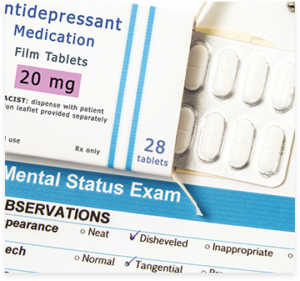Medication in Recovery
Medication is a foundation of recovery for most people with a serious mental health condition. Although all components of the recovery process are important, medication often plays a key role.
The reality is that being on medication can be challenging. For some people, the idea that medication will be needed can be difficult to accept.
Working closely with the doctor and recovery team can help to determine a medication plan that works for the individual receiving treatment. Luckily, today there are a variety of medication options available for people with serious mental health conditions. Some people may prefer to take oral medications every day; others may prefer a long-acting injectable medication that is administered every few weeks in a doctor’s office or clinic.
Having choices will help each person find the medication(s) most appropriate to his or her individual needs. Research into new mental health treatment options is ongoing. This is one reason why it is important to be in regular contact and have conversations with the doctor and members of the recovery team. Be certain to ask them about new technologies and advances, as well as new medication options.

Keep in mind that it can take many tries over several years to find the medication or combination of medications that help manage symptoms most effectively, with the fewest side effects or the side effects that are most tolerable.
For many people, taking antipsychotic medication regularly and correctly as prescribed can help reduce the symptoms of schizophrenia, shorten hospital stays, and reduce the chance of hospitalizations.

